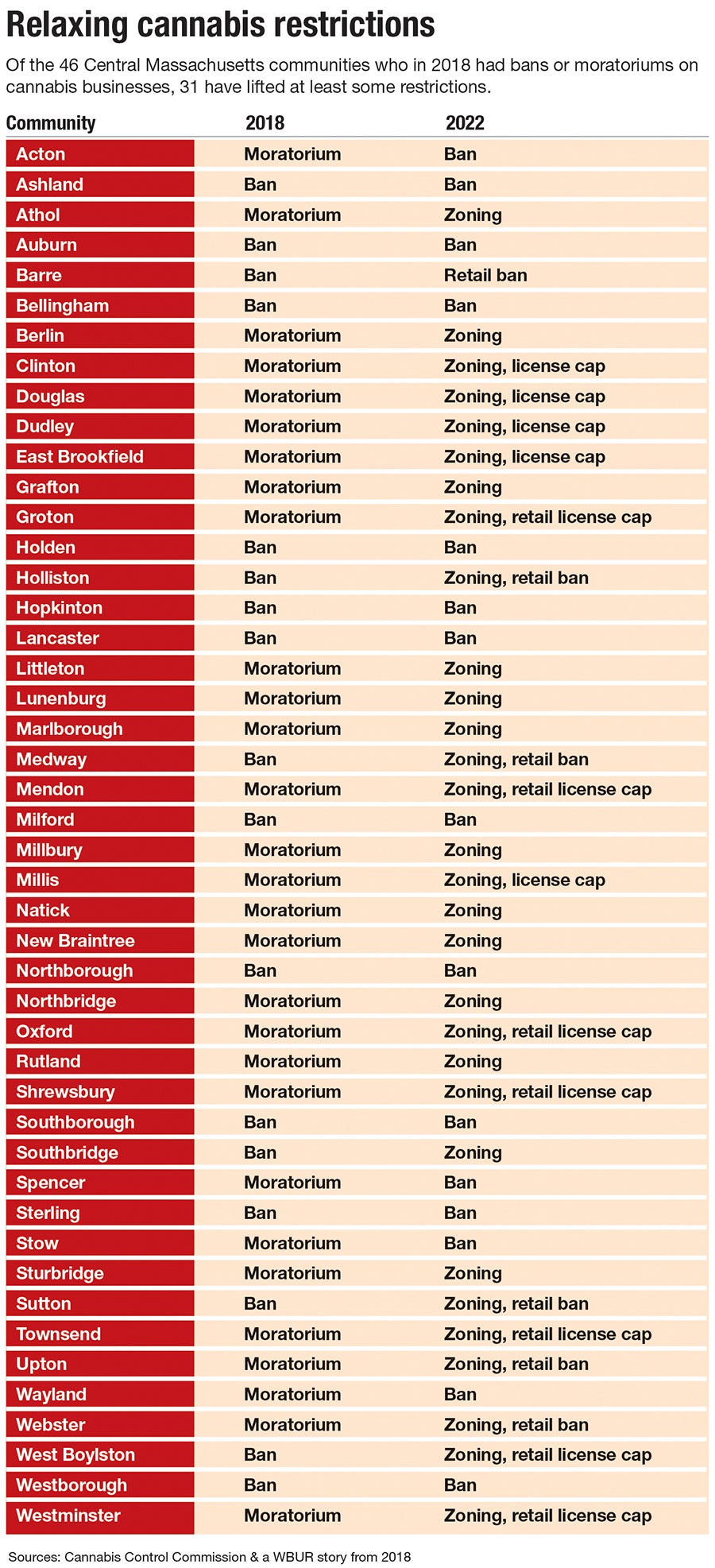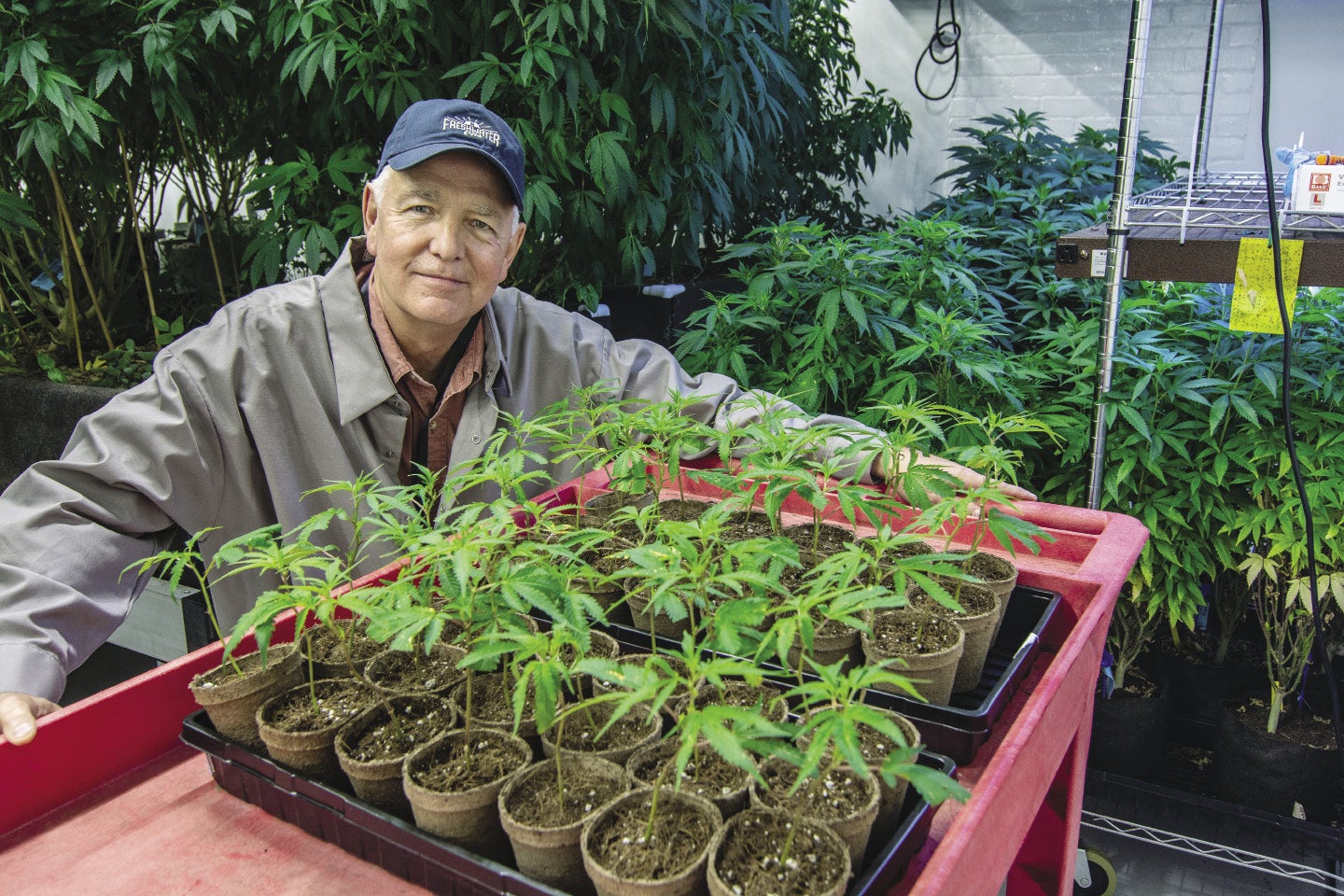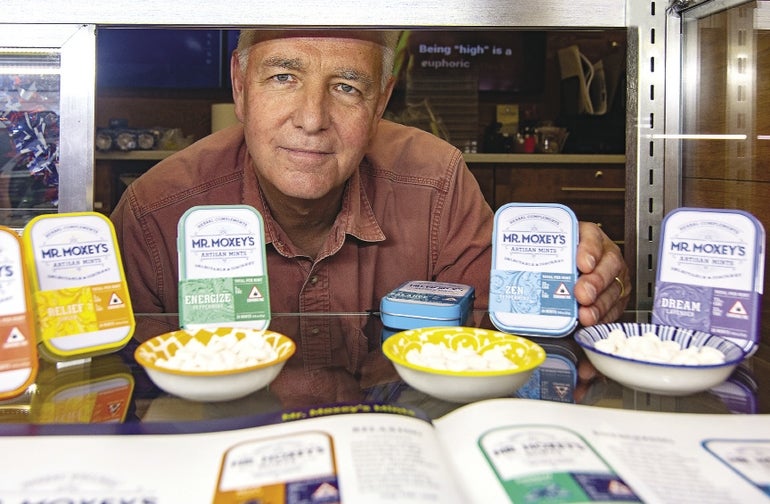As the chairman and CEO of Southbridge’s first cannabis dispensary, Bob Patton has had a uniquely powerful impact on the town, but it was not easily earned.
Get Instant Access to This Article
Subscribe to Worcester Business Journal and get immediate access to all of our subscriber-only content and much more.
- Critical Central Massachusetts business news updated daily.
- Immediate access to all subscriber-only content on our website.
- Bi-weekly print or digital editions of our award-winning publication.
- Special bonus issues like the WBJ Book of Lists.
- Exclusive ticket prize draws for our in-person events.
Click here to purchase a paywall bypass link for this article.
As the chairman and CEO of Southbridge’s first cannabis dispensary, Bob Patton has had a uniquely powerful impact on the town, but it was not easily earned.
When Patton came to town proposing his Green Meadows dispensary, Southbridge had a ban on all adult-use cannabis, only allowing medical sale of marijuana. At that time, around 2018, Southbridge was one of 17 municipalities in Central Massachusetts with complete bans on recreational cannabis production and retail.
For Patton, who saw great potential in Southbridge’s old mill buildings and desire for new economic opportunity, the ban wasn’t much of a deterrent.
“We just went the full nine yards about introducing the possibility of cannabis to the town,” Patton said. “We did forums. We went to social clubs. Everything was bilingual because there’s a very large Latino community.”
In a 2019 vote, which was the third time Southbridge residents voted on the question of legalized marijuana, the town officially lifted the ban on adult-use cannabis.
Green Meadows’ perseverance in Southbridge is reflective of the marijuana industry’s experience across the state, as the once illicit and then uniquely legal product has become more normalized, accepted, and widespread since voters first legalized it in a 2016 ballot initiative. Since the first adult-use dispensaries opened in November 2018, the industry has generated more than $3 billion in revenue.
Of the 46 municipalities in Central Massachusetts who had an initial ban or moratorium on the industry operating in their communities, about 67% of those towns and cities have loosened restrictions.
“The initial bans were largely based on fear of the unknown,” said Shaleen Title, an attorney who served as one of the first commissioners on the Massachusetts regulatory body Cannabis Control Commission.

Mindset shift
Changing the town’s bylaws was a matter of shifting residents’ mindsets and dispelling that fear, said David Adams, a Southbridge town councilor and the president of the Southbridge Veterans Council. Adams himself voted no twice on the cannabis question, but was swayed by the industry's promising economic impact on the town.
“I’m not a user, and I voted no twice; but when it came to a business aspect and how it benefits [the town], I think that open mind helped a little bit,” said Adams, adding that Patton’s presence in the early days helped change his mind. Patton “showed up to every meeting we had. He was the face of the cannabis boom into the town.”
Patton’s business model is largely built on his family’s legacy, starting with his grandfather, World War II General George Patton. Green Meadows is focused on rehabilitation for veterans struggling with post-traumatic stress disorder and anxiety, as well as hiring vets. Additionally, organic horticulture is a top priority in Green Meadows’ cultivation branch, as Bob’s father, who was a major general, established a farm in Hamilton in the 1980s.
Bob was drawn from the North Shore to Central Massachusetts, in part, by a vacant but expansive mill building which caught his eye on the real estate market.

Southbridge, like so many New England towns and cities, was once a bustling manufacturing hub, anchored by the American Optical Co., which employed more than 4,000 residents in its heyday. When the company moved production to Mexico in 1992, the town began to experience an economic downturn which it continues to grapple with today.
“There was certainly a quest in the town for bringing in business,” Patton said. “We were just one little component, but I think we were excited to be a part of that new rebirth that we felt was happening in Southbridge.”
Economic rebirth
Green Meadows employs nearly 80 people between its retail and cultivation facilities, 34% of whom live in town, said Patton. The facility, opened in 2021, spans 35,000 square feet in a restored 19th century mill building, which had been blighted for years.
The renovation and investment was a welcomed change to both the property and neighborhood, which Adams described as dead before Green Meadows entered the scene.
“They put in million dollars and re-energized this entire area,” Adams said. “What I didn’t understand was how banning something like that protected the town. Sturbridge and Charlton all started receiving economic advantages, but Southbridge was missing the boat.”
Of Southbridge’s four bordering towns in Massachusetts, three had moratoriums in 2018, but all have eventually been zoned to allow some type of marijuana production or retail.

“I do think more towns will continue to lift bans going forward,” said Title. “The idea was that they would wait and see. What they're seeing is their residents going to the next city over to make cannabis purchases and that other city gets the 3% tax plus fees.”
Since Green Meadows opened, two more dispensaries have come to Southbridge, one already open and the second slated to open this year. Municipalities can place a tax of up to 3% on cannabis sales, offering substantial revenue for a municipality.
Adams said between four initially proposed and existing dispensaries, Southbridge is estimating an eventual $1 million in annual revenue from its cannabis industry, although that figure is slightly lower now that one of the proposed shops has fallen through.
“As more cities and towns allow cannabis businesses to operate, the market in our state will continue to mature and there will be new pressure on businesses to compete with better quality and lower prices,” Title said.

